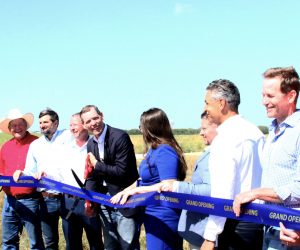Buda, News
Buda aquifer storage bill moves forward in legislature
While Buda officials eye the possible passage of an Aquifer Storage and Recovery (ASR) bill, heartburn remains over legislation that could cap the city’s ability to increase its property tax rate.
On April 18, Texas Solutions Group (TSG), an Austin-based firm lobbying on Buda’s behalf during the 86th Legislative session, updated the Buda City Council on progress of several key pieces of legislation.
One of those is House Bill 1044, authored by State Rep. Erin Zwiener (D-Driftwood),...








